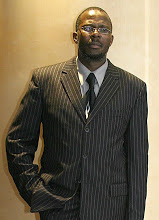SUNDAY TRIBUNE, 04 August 2002
THE frank engagement and commitment displayed by members of all I races during the two-day KwaZulu-Natal African-Indian Dialogue over the weekend has finally put to rest all the uproar stemming from Mbongeni Ngema's AmoNdiya song.
The artistic capabilities of the popular anti-apartheid playwright Mhpngeni Ngema have gone beyond any historical perspective of stereotypes in race relations.
Ngema has opened up a melting pot aimed at unqualified reconciliation among races.
The message of Ngema is that our government must not hide its 'head in the sand when, almost a decade after democracy social and economic disparities keep widening.
The song (makes people) question whether the blood shed to defeat the crime against humanity was necessary
With credible participants such as King Goodwill Zwelithini endorsing the sentiments expressed in the song, who can accuse Ngema of fanning interracial fires?
The colonial masters had a grand scheme of setting races against each other, but the song transcends that.
Academics of the high calibre such as Prof Hebert Vilakazi and Dr Saths Cooper articulated that the legacy of the successive oppressive white regimes created a state of mistrust, prejudice and unwarranted hate among racial groupings in this country.
Impediment
While one may not approve of the lyrics of the song, they do not constitute hate speech and an incitement to harm. After this constructive engagement by Idasa. Indians' fears have diminished.
Surely, there's a thin line between freedom of expression and hate speech. In a heterogenous country like ours, does not Ngema exercise calls for various communities to be bilingual?
Was the lack of understanding of the Zulu poetic language not an impediment in analysing the song in our rainbow nation?
Eminent religious leaders such as Bishop Rubin Phillip, Advocate Ash win Trikamjee and prominent business people Mr Vivian Reddy Mr Zenzele Mhlungu and Mr Don Mkhwanazi agree that both Indian and African people need interventions aimed at addressing and improving economic inequalities among themselves.
Having defeated apartheid collectively, business people argue for the formation of partnerships between these groupings. People spend most of their time at their workplaces. These centres must be used to foster and improve relations.
The renowned political analyst Protas Madlala has called upon government to facilitate nation-building initiatives, in terms of creating trading centres that are African-Indian
inclusive.
NKONZO MQADI
Durban
Friday, July 31, 2009
Subscribe to:
Post Comments (Atom)



No comments:
Post a Comment